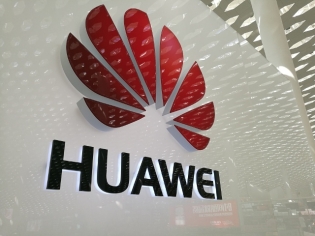Google’s Android block on Huawei explained
By Ryan Noik 20 May 2019 | Categories: news
The latest example of technology and politics intersecting came today as Google announced that it would ban Huawei devices in compliance with the US government’s orders.
This means that Google services – like its Play store and Gmail, not to mention YouTube and Maps – as well as Android and its updates, are in jeopardy.
However, existing devices that are already in the market will still be able to access the Play store, update their apps and receive Android OS updates. So if you already own a Huawei phone, it would be premature to start panicking.
Rather, the ban, at least as it stands, is a body blow to forthcoming phones from the company, which would not be able to run on the Android OS or use Google’s services as long as the ban stands. The latter is of less consequence in China, where Google services are inaccessible anyway, but in other nations, including South Africa, where users are more invested in the Google ecosystem, it amounts to cutting Huawei’s reach considerably.
That being said, should the ban stay in effect, it might just be the push Huawei has been waiting for to launch its own OS – something that the company has reportedly been working on as its Plan B since 2012.
Huawei issued a statement today that both sought to reassure its users, while hinting at its response to potentially of being locked out of the Android ecosystem moving forward:
"Huawei has made substantial contributions to the development and growth of Android around the world. As one of Android’s key global partners, we have worked closely with their open-source platform to develop an ecosystem that has benefitted both users and the industry.
"Huawei will continue to provide security updates and after-sales services to all existing Huawei and Honor smartphone and tablet products, covering those that have been sold and that are still in stock globally.
"We will continue to build a safe and sustainable software ecosystem, in order to provide the best experience for all users globally."
The thinly veiled attack on the company is not the first. Earlier this year the US sought to discourage other nations from investing in Huawei’s 5G infrastructure, citing supposed security concerns. Most recently, there was the saga of the company’s CFO being extradited in a move that Huawei maintained was politically motivated. However, it also comes in the midst of a trade war with China, with the current US administration leveraging hefty tariffs on Chinese goods, with China responding in kind.
More so though, it’s difficult not to imagine this being a case of Huawei being caught in the middle of a punitive trade war and being punished for originating in China, rather than having anything to do with security concerns in the US. After all, Facebook, which originates in the US, has found itself accused of everything from breaching users’ privacy to enabling a foreign power to manipulate the US presidential election, and there has been no sort of ban leveraged on the social media company to date.
As for Huawei and its fate with regards to Google and Android, it’s a case of wait and see. Should the ban be reversed soon, it will likely go down as yet another geopolitical tirade. If not, then Huawei may well have to consider itself collateral damage in a trade war between the US and China – and general users may well find themselves with another OS and app ecosystem to consider buying into.
Most Read Articles

Have Your Say
What new tech or developments are you most anticipating this year?



